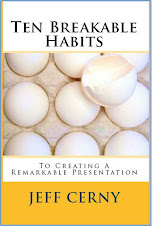Today in this part of the country, the muffled stillness of deepening snow emphasizes the quiet pause after Christmas and before the commencement of the new year. Here's a timeless description of these between days from a collection of essays by British historian Hilaire Belloc. He talks about the importance of ceremony during this week to "modern men" in a "terribly changing time." This is part of that essay, first published in 1928:
"Now, you must not think that Christmas being over, the season and its glories are at an end...
In the midst of this season between Christmas and Twelfth Day comes the ceremony of the New Year, and this is how it is observed:
On New Year's Eve, at about a quarter to twelve o'clock at night, the master of the house and all that are with him go about from room to room opening every door and window, however cold the weather be, for thus, they say, the old year and its burdens can go out and leave everything new for hope and for the youth of the coming time...
While this is going on the bells in the church hard by are ringing out the old year, and when all the windows and doors have thus been opened and left wide, all those in the house go outside, listening for the cessation of the chimes, which comes just before the turn of the year.
There is an odd silence of a few minutes, and watches are consulted to make certain of the time, and the way they know the moment of midnight is by the boom of a gun, which is fired at a town far off, but can always be heard.
At that sound the bells of the church clash out suddenly in new chords, the master of the house goes back into it with a piece of stone or earth from outside, all doors are shut, and the household, all of them, rich and poor, drink a glass of wine together to salute the New Year.
This, which I have just described, is not in a novel or in a play. It is real, and goes on as the ordinary habit of living men and women. I fear that set down thus in our terribly changing time it must sound very strange and, perhaps in places, grotesque, but to those who practice it, it is not only sacred, but normal, having in the whole of the complicated affair a sacramental quality and an effect of benediction: not to be despised.
Indeed, modern men, who lack such things, lack sustenance, and our fathers who founded all those ritual observances were very wise."
Here's to a fantastic New Year in 2010.



